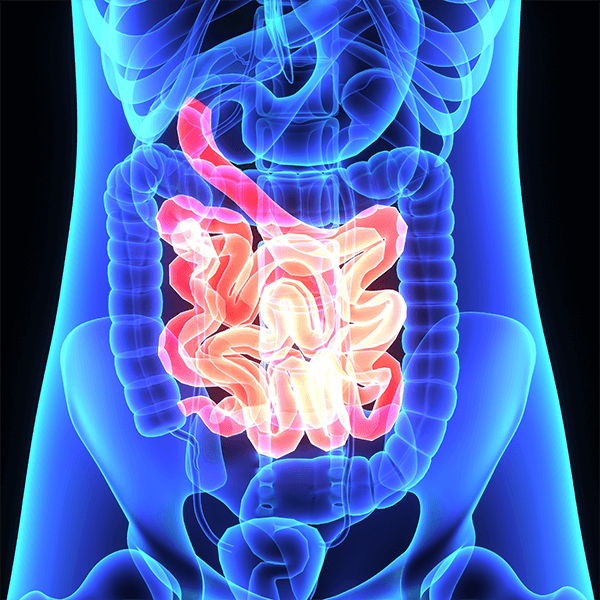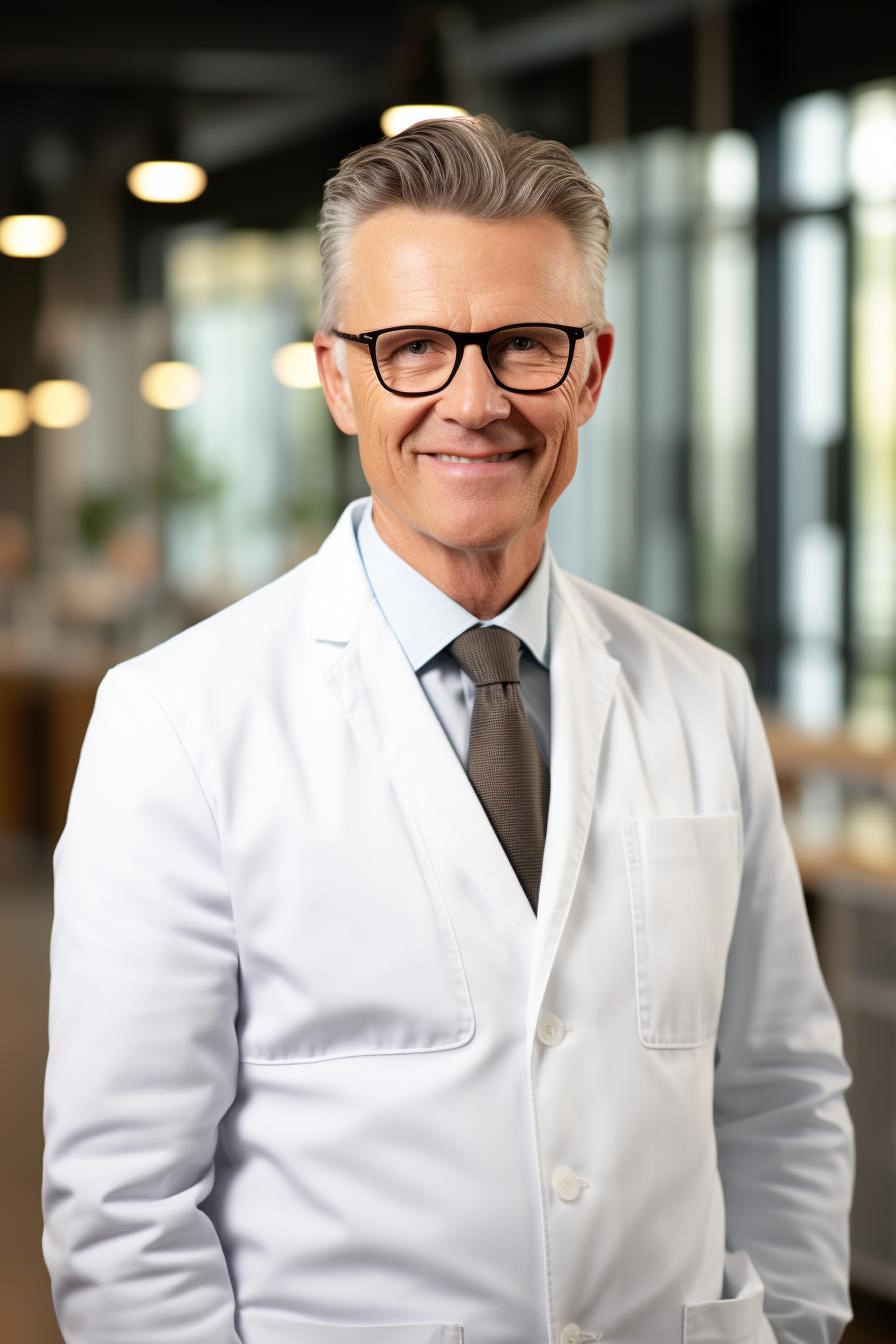What is an enteroscopy?
Enteroscopy is an endoscopic procedure during which an extended, skinny, limber scope (or tube) is introduced into your mouth and propelled to the jejunum (the second portion of the small intestine). The scope has a light and a camera on the end of it which allow the physician to clearly see the lining of the esophagus, stomach, and small intestine. An enteroscopy procedure might be utilized to determine the reason for GI issues such as abdominal pain, bleeding, or concerning x-ray results. If you have been told you need an enteroscopy, contact one of our knowledgable gastroenterologists at Colorado Gastroenterology for more information. Our providers often conduct enteroscopy procedures for Denver, CO patients and look forward to helping you enhance your gastrointestinal health.

Why would someone need an enteroscopy?
The enteroscopy procedure is most commonly completed to distinguish irregularities or disorders in the small bowel. Indications of such concerns could involve:
- Unexplained bleeding
- Abnormal x-ray results
- Abnormal tumors or growths in the small intestine
- Unexplained diarrhea
To some degree, alternative exam options will depend on the motive for requiring the enteroscopy in the first place. In most patients, enteroscopy is the best way to diagnose and manage abnormalities in the upper GI tract, especially if they impact the jejunum (the second portion of the small intestine). However, an x-ray image referred to as an upper GI/small bowel follow-through can evaluate the upper GI tract, too. This is, though, just a diagnostic approach. Treating these findings will necessitate an enteroscopy and/or a surgical procedure.
What can I expect the day prior to my enteroscopy procedure?
Before your enteroscopy, you will get directions from your Colorado Gastroenterology GI doctor regarding the required preparation. Many individuals will most likely be able to eat as normal the day prior to the exam. You will be instructed not to take anything by mouth after midnight except for medications. It is important to follow the directives given to you by your GI specialist. You will also receive additional information about your medications. In the majority of instances, your medications will be continued as instructed. However, in select patients, especially in individuals on anti-coagulants and who have diabetes, special guidelines will be administered.
What happens during my enteroscopy?
We will ask you to enter the endoscopy unit 1 to 1.5 hours prior to your enteroscopy exam. This ensures you’re able to complete paperwork and prepare for the procedure. You will be asked to change into a hospital gown. An IV catheter will be inserted in your arm so sedation can be given to you. We will connect you to a system that will help our team to monitor your heart rate, pulse, oxygen levels, and much more while you’re in our care.
Once in the exam room, we’ll have you lie down on your left side on our procedure bed. The sedation will then begin. We’ll give it to you in small amounts at a time to make sure you do not have any reaction to the medication and to provide just the amount that you need individually. After the correct amount of medication is achieved, the endoscope will be carefully introduced into the mouth. We will carefully advance the scope through your esophagus, stomach, and small intestine. A small amount of air will be injected through the scope into the gastrointestinal (GI) tract to help the physician see. Any fluid remaining in the upper gastrointestinal tract is suctioned out through the scope. Depending on the findings of your procedure, a number of procedures or treatments can be performed at the time of the procedure, like biopsies, removal of polyps, and control of bleeding. Once we’re done, remaining air and fluid is removed through the scope. Depending on our findings, the exam takes approximately 15 – 45 minutes.
After the exam, the patient is escorted to recovery to be observed while you come out of sedation. The amount of IV sedation given during your enteroscopy and your particular response to the it will determine how fast you wake up, though many patients are awake enough for discharge after about 45 – 60 minutes. You will not be allowed to drive for the rest of the day, so you will need to have arrangements made for someone to take you home. You will not be able to work, sign official documents, or complete strenuous activities for the remaining day. Typically, patients are capable of eating and drinking normally after being released from the endoscopy unit, however, specific instructions regarding activities, medications, and eating will be provided before discharge.
Following your enteroscopy exam, your Colorado Gastroenterology team will review the findings of your exam with you. A number of people have difficulty remembering what they are told after the exam due to the effects of the sedation medication. It is recommended, if you’re able, to bring someone with you for these results. You will also go home with a report. You will be provided with any biopsy results within about seven days.
What are the risks of an enteroscopy?
In general, the enteroscopy is a very safe exam. Overall, setbacks occur in fewer than 1% of patients. The majority of problems are not terminal, however, if a problem occurs, it may warrant hospitalization and surgery. Prior to the exam, we’ll make sure you understand all risks before signing the consent form. If any questions or concerns pop up, these can be gone over with your physician prior to beginning the procedure.
Reactions due to sedation might happen. These can include but are not limited to difficulty breathing, effects of your heart and blood pressure, allergic breathing, and irritation of the vein that received the medication. Bleeding could occur with biopsies, removal of polyps, and with dilating strictures. Additionally, bleeding, which resulting in hospitalization or a blood transfusion, is unlikely. A tear or trauma of the esophagus, stomach, or small intestine might happen, although unlikely. We might recognize this at the time of the procedure, or it may not become evident until later in the day. In the majority of cases, this will mean surgery and/or a hospital stay. This is an uncommon complication, even when dilation is performed and biopsies are taken. It is very important that the patient call our Denver, CO office promptly should symptoms arise after the procedure like worsening abdominal pain, bleeding, or fever.
As is the case with any other test, enteroscopy is not without imperfections. There exists a small, accepted chance that irregularities, such as cancers, may be undetected at the time of the procedure. It is very important to routinely follow up with your physician as recommended and let them know of any new or ongoing issues.

Advanced options for better GI health
Enteroscopy FAQs
Is there anything I should avoid after my enteroscopy?
Before sending you home after your enteroscopy, our team will provide guidelines for you to follow while you recover from the procedure. You should avoid eating or drinking until your doctor gives you the go-ahead and adhere to any specific medication guidelines provided. You should also refrain from strenuous physical activities. If you experience severe abdominal pain, persistent bleeding, or develop a fever, contact your healthcare provider immediately.
Is enteroscopy safe for everyone?
Certain individuals may not be suitable candidates for enteroscopy due to the potential risks of the procedure. These include patients with severe heart or lung conditions, uncontrolled bleeding disorders, or those who have recently suffered a heart attack. Enteroscopy may also be inadvisable for those with anatomical abnormalities or strictures in their digestive tract. It’s essential to discuss your medical history and any concerns with our team to determine if an enteroscopy is appropriate for you.
Is there a difference between an endoscopy and an enteroscopy?
Endoscopy and enteroscopy differ in the parts of the digestive tract they examine. Both procedures use a flexible tube with a camera (endoscope), but an endoscopy typically looks at the upper gastrointestinal tract, including the esophagus, stomach, and duodenum. Enteroscopy, however, specifically focuses on the small intestine, which is deeper within the digestive system and harder to access. Enteroscopy is often used when other diagnostic tests like endoscopy or colonoscopy have not provided clear enough results or when there is a suspected issue in the small intestine.
